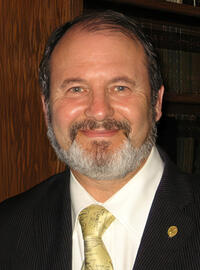The History of the Hungarian (Magyar) Translation
The History of the Hungarian (Magyar) Translation
The book must be translated into many tongues.
The Hungarian language is also known as the Magyar language because the Hungarian people were originally an ethnic group known as the Magyars. The Magyars were one of the tribes of the Huns. Is this why they are called Hun-garians?
Linguistically the Hungarian language is a distant relative of the Finnish and Estonian languages.
In December 1999, the translation team, members of which prefer to remain anonymous, attempted to translate the following, which sparked their impulse to translate the entire book: “...learn to feast upon uncertainty, to fatten upon disappointment, to enthuse over apparent defeat, to invigorate in the presence of difficulties, to exhibit indomitable courage in the face of immensity, and to exercise unconquerable faith when confronted with the challenge of the inexplicable.” (Page 291 - §3) Almost seven years later, in October 2006, the translation team completed its first draft of the Magyar translation.
In December 2006, a review team was formed and composed of Margo Sherwood, who was born and raised in Hungary, and who is married to long-time reader Will Sherwood; Elmer Teleki, who read about the translation in the 2006 Annual Report of Urantia Foundation; and István Hargitai, who joined the team in April 2008.
In March 2008, the translation team, the review team, and the Board of Trustees of Urantia Foundation agreed to display the Hungarian translation in HTML format on the Foundation’s website.
This year, in May of 2009, almost nine and a half years into the project, the review team, in cooperation with the translation team, completed their work and made thousands of revisions and corrections. They had reviewed and corrected foreign words and proper names; they had corrected inconsistencies in formatting; they had identified, translated, and inserted missing sentences; and they had checked more than 59,000 occurrences of 511 special words, including units of measurement, proper names, and certain punctuation marks, and had made more than 1,300 special-word corrections.
Ferenc Bucholcz has volunteered to make an independent and final review of the translation.
